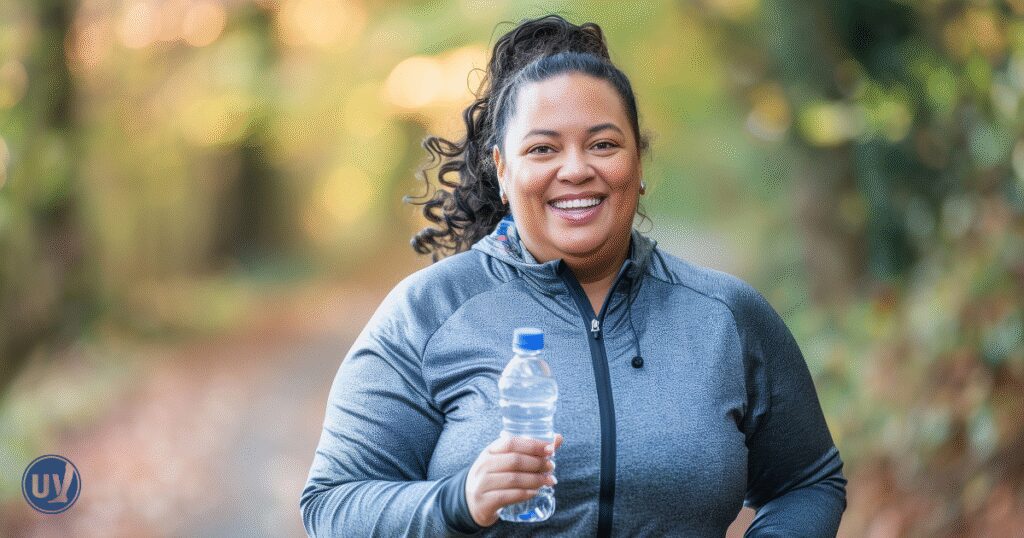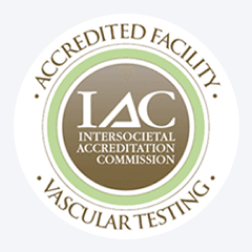Contents
- Understanding Dehydration: What Happens in the Body
- How Dehydration Affects Vein Health
- The Link Between Dehydration, Vein Swelling, and Leg Cramps
- Recognizing Dehydration Symptoms and Effects
- Why People with Vein Conditions Are at Higher Risk
- Preventing Dehydration: Practical Tips for Vein Health
- Lifestyle Changes to Support Hydration and Vascular Health
- When to Seek Medical Advice
- Empowering Yourself for Better Vein Health
- Frequently Asked Questions
Dehydration is more than just feeling thirsty. It can have significant effects on your body, especially your veins. When your body lacks water, your blood volume decreases. This forces your veins to work harder, potentially leading to swelling.
Vein swelling can cause discomfort and visible changes, particularly in your legs. This is often accompanied by leg cramps, a common symptom of dehydration. These cramps occur due to an imbalance of electrolytes and reduced blood flow.
Understanding the connection between dehydration and vein health is crucial. It empowers you to take proactive steps in managing your condition. Proper hydration is essential for maintaining healthy blood circulation and preventing vein-related issues.
Recognizing the symptoms of dehydration can help you address them early. This can prevent more severe complications. By staying informed, you can make better decisions about your health and improve your quality of life.
Understanding Dehydration: What Happens in the Body
Dehydration happens when your body loses more fluids than you take in. This imbalance can disrupt vital processes needed for your health. It’s important to understand what occurs during dehydration.
Firstly, your blood volume decreases, affecting circulation. With less fluid, your body struggles to transport oxygen and nutrients effectively. This can lead to tiredness and dizziness.
Your kidneys work harder to preserve water, which reduces urine output. As a result, waste products may build up, causing further issues. Maintaining fluid balance becomes critical to avoid these effects.
Electrolytes like sodium and potassium become unbalanced. These elements are crucial for muscle function and nerve signaling. An imbalance can result in cramps and other symptoms.
Common dehydration symptoms include:
- Increased thirst
- Dry mouth and lips
- Tiredness and dizziness
- Reduced urine output
Understanding these changes emphasizes the importance of adequate hydration. By ensuring proper water intake, you help your body function optimally. This awareness is a critical first step in promoting vein health and overall wellness.
How Dehydration Affects Vein Health
Dehydration can significantly impact vein health, leading to uncomfortable symptoms and possible complications. It’s vital to grasp how this condition affects your vascular system.
When dehydrated, blood volume decreases, forcing veins to work harder. This can cause veins to swell as they compensate for the lack of fluid. Swelling in the veins, particularly in the legs, may occur due to these adjustments.
Dehydration also increases blood viscosity, making it thicker. Thickened blood is harder for the heart to pump, putting additional stress on your veins and cardiovascular system. This can lead to discomfort and complications in vein function.
The elasticity of your veins is affected by dehydration. Veins may become less flexible, which increases their susceptibility to damage. Elasticity is essential for veins to function properly without injury.
Key effects of dehydration on vein health include:
- Swelling and discomfort
- Increased blood viscosity
- Reduced elasticity
Chronic dehydration can exacerbate existing vein conditions, worsening symptoms over time. Individuals with vein issues should be particularly vigilant about their hydration levels to prevent further complications.
By recognizing these effects, you can take proactive measures to maintain vein health. Adequate hydration is crucial for supporting circulatory function and mitigating the negative impact of dehydration on your veins.
The Link Between Dehydration, Vein Swelling, and Leg Cramps
Dehydration plays a crucial role in the development of vein swelling and leg cramps. Understanding this link can help in managing these symptoms effectively.
When you’re dehydrated, your body experiences an electrolyte imbalance. This imbalance can lead to muscle cramps, particularly in the legs. Leg cramps are often a direct result of muscles reacting to a lack of hydration and essential minerals.
Reduced blood flow is another consequence of dehydration. As the volume of blood decreases, circulation efficiency diminishes, leading to further complications. This decreased circulation can exacerbate vein swelling and increase the likelihood of leg cramps.
Moreover, dehydration causes the body’s tissues, including veins, to lose moisture and flexibility. This can intensify the discomfort associated with swollen veins and muscle spasms. The body requires adequate hydration to maintain tissue health.
Recognizing this connection between hydration, vein health, and muscle function is essential for individuals prone to vein swelling and cramps. By staying adequately hydrated and maintaining electrolyte balance, you can help mitigate these uncomfortable symptoms and support overall vascular health.
Recognizing Dehydration Symptoms and Effects
Dehydration can manifest in numerous ways, each carrying its own set of challenges. Identifying these symptoms promptly can aid in addressing hydration deficiencies before they exacerbate.
Common indicators of dehydration often include feelings of thirst and a dry mouth. These are generally the first signs that the body is lacking sufficient water intake. However, there’s more beneath the surface.
Fatigue and dizziness are deeper symptoms often connected to inadequate hydration levels. These can disrupt daily activities, making it difficult to focus or work efficiently. Such symptoms should not be ignored, as they indicate more significant fluid losses.
Urinating less frequently or noticing dark yellow urine highlights serious hydration issues. Monitoring urine color can serve as a practical way to assess your body’s needs. Light-colored urine typically suggests adequate hydration, whereas darker shades can indicate a deficit.
Effects of dehydration can extend to the cardiovascular system and involve increased heart rate and blood pressure. This happens as the body tries to maintain circulation with a reduced blood volume.
Why People with Vein Conditions Are at Higher Risk
Individuals with vein issues face unique challenges regarding dehydration. Their bodies often require more fluid to support proper blood flow and reduce vein swelling.
Vein swelling can become more pronounced when the body lacks sufficient water. Dehydration reduces blood volume, forcing veins to work harder and potentially leading to discomfort.
Those with existing conditions, like varicose veins, may find their symptoms worsening when dehydrated. This makes staying hydrated crucial to managing their condition effectively.
Furthermore, dehydration can increase blood viscosity, making it tougher for the heart to pump efficiently. This elevated stress can exacerbate vein health issues. Maintaining adequate hydration is not just beneficial, it’s essential for people with vein conditions to prevent complications and keep symptoms at bay.
Preventing Dehydration: Practical Tips for Vein Health
Staying hydrated is key to vein health. Here are some straightforward tips to prevent dehydration and maintain healthy veins.
First, carry a water bottle wherever you go. It serves as a constant reminder to drink water throughout the day.
Set reminders on your phone or use apps that track water intake. They can help keep you accountable.
Incorporate hydrating foods into your diet. Fruits and vegetables like cucumbers, watermelon, and oranges are great options.

Electrolyte balance is crucial. Include drinks that replenish electrolytes, especially if you’re physically active or in hot conditions.
Here’s a simple checklist for maintaining hydration:
- Drink at least eight glasses of water daily.
- Consume hydrating foods.
- Replenish electrolytes after sweating.
- Monitor urine color; aim for pale yellow.
- Limit alcohol and caffeine intake.
For individuals with vein conditions, being proactive about hydration can help avoid vein swelling and discomfort.
Lifestyle Changes to Support Hydration and Vascular Health
Maintaining hydration goes hand in hand with overall vascular health. Simple lifestyle changes can bolster your efforts to stay hydrated and support your veins.
Begin by integrating hydration into your daily routine. Drink water with meals and carry it with you during activities.
Reducing salt intake can benefit both hydration and vein health. High salt levels can lead to fluid retention and stress on veins.
Make exercise a regular part of your life. Physical activity improves circulation, which is essential for vein health.
Focus on a balanced diet that includes plenty of fruits and vegetables. They provide essential vitamins and keep your body hydrated.
These small tweaks can have a big impact on your vein health. Embracing these changes not only supports hydration but also promotes overall well-being.
When to Seek Medical Advice
Understanding when to seek medical advice is crucial for managing vein health. If you notice persistent vein swelling or recurrent leg cramps, it may indicate an underlying issue.
Dehydration that doesn’t improve with increased fluid intake also warrants attention. Consulting a healthcare professional ensures proper assessment and tailored recommendations.
Severe dehydration symptoms, such as confusion or fainting, require immediate medical care. Timely intervention is vital for addressing complications and supporting vein health.
Don’t hesitate to discuss any concerns with your healthcare provider. Early detection and treatment can prevent further complications, improving your quality of life. Prioritizing your well-being is always worth the effort.
Empowering Yourself for Better Vein Health
Staying hydrated is one of the simplest yet most powerful ways to support your vein health. When you understand how dehydration affects circulation, you can take proactive steps to keep your veins healthy and your body feeling its best.
Small habits—like drinking water throughout the day, eating hydrating foods, and listening to your body’s signals—can make a big difference in reducing swelling, leg cramps, and discomfort.
For personalized guidance and expert care, connect with United Vein & Vascular Centers. Our specialists can help you understand your vascular health and create a plan that supports long-term wellness. Schedule a consultation today to take the next step toward healthier veins.
Frequently Asked Questions
Yes. When you’re dehydrated, blood volume decreases, making it harder for veins to circulate blood efficiently. This can lead to swelling, cramps, and discomfort in the legs.
Common signs include leg cramping, heaviness, or swelling that worsens throughout the day. You may also notice more visible veins or a feeling of tightness in the legs.
Most adults benefit from drinking at least 8 glasses (about 64 ounces) of water daily, though individual needs vary. Staying consistent with hydration throughout the day helps maintain healthy circulation and vein function.


